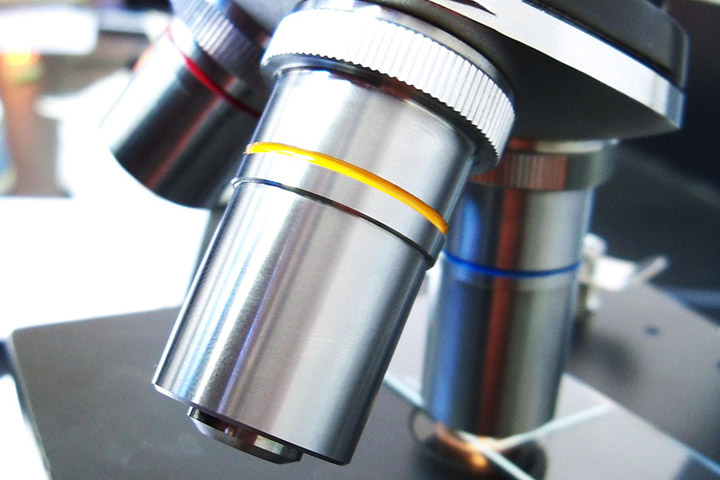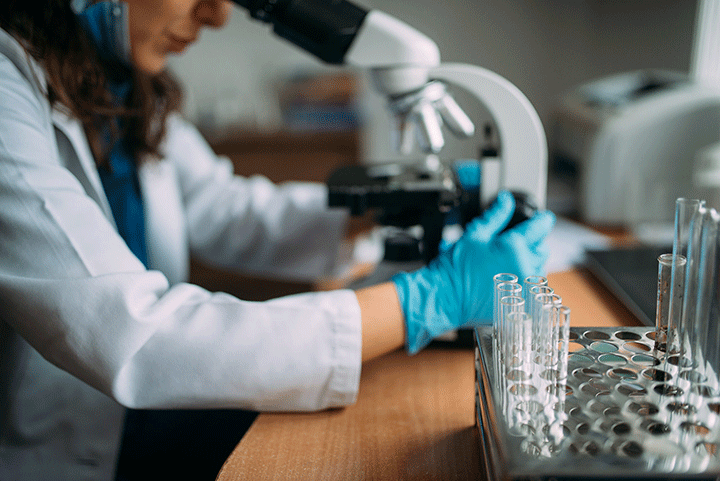Blood-Based Test Predicts What Drugs May Work Best

If there is a Holy Grail in oncology it’s to match a patient’s tumor to the best drugs that could kill the cancerous cells based on the specific molecular profile that makes that tumor tick.
Molecular research into pancreatic cancer, along with advances in sequencing technologies, have identified many altered genes in patients with the disease and revealed the marked genetic heterogeneity of these tumors.
Science knows that chemotherapy is not equally effective for each patient since cancer is really a disease that is influenced by individual factors. Although pancreatic cancers may be similar in origin, the susceptibility of an individual’s cancer cells to a chemotherapeutic regimen differs between patients. So-called chemosensitivity is essentially how well a tumor responds to a given cancer drug, which includes whether its growth is inhibited or its cells are destroyed as a result of treatment.
Dr. Kenneth Yu, a physician–scientist and medical oncologist at Memorial Sloan Kettering Cancer Center (New York), together with Brian McCarthy, CEO of Adera Biolabs, an innovative biotech company, and other colleagues have developed an assay that analyzes the “gene expression profile” of tumor cells in the patient’s bloodstream. With this simple blood test, the hope is that specific sets of genetic changes in those tumor cells can help doctors predict which chemotherapeutic regimen is best for a particular patient.
“The overarching theme is that we continue to develop targeted and immune therapies in pancreatic cancer, however, because we have not been very successful, chemotherapy remains the mainstay of treatment. We are still choosing chemotherapy drugs blindly because we don’t have a good way of predicting what drugs are good for that individual patient that walks in the door,” says Yu. His research focuses on the discovery and implementation of biomarkers for the diagnosis of pancreatic cancer and the development of more-effective treatments for the disease.
“There is a huge push for molecular profiling of pancreas tumors and that is extremely important, but only a small percentage of people are helped. We need to get to a point where more pancreatic cancer patients are given more effective treatments based on their molecular profiles.”
A Blood-Based Assay
The so-called pharmacogenomic blood-based assay that Yu and colleagues are working on refining had its genesis about 10 years ago. “Much credit should be given to Mark (Ricigliano, who passed away in 2017), the founder of Adera BioLabs (Germantown, Maryland), who had the idea and the expertise to develop a blood-based assay to try to personalize treatment,” he explains.
“Pharmacogenomics” is an overarching term that basically refers to how scientists study specific genes and how those genes affect an individual’s specific response to medications, in this case, an individual patient’s tumor to different chemotherapy drugs. “So what we have been doing over the last 10 years is trying to apply that with patients in various trials,” Yu explains. “A blood-based assay is easier on patients compared to a tumor biopsy. Plus, you can look at changes that occur in the blood over time.”
Beyond standard chemotherapy combinations, this approach can be applied to more innovative approaches. He notes, “The way the assay is developing is that we are actually looking at mixing and matching drugs from different regimens. Think of it as a much more innovative, customized bespoke approach for patients.”
Promising Results
At the 2020 American Society of Clinical Oncology meeting, Yu and colleagues presented the poster Pharmacogenomic blood-based assay to predict chemotherapy response and survival in pancreatic cancer. The work was also published in the proceedings of the Journal of Clinical Oncology, and a manuscript describing the final results of this study is due to be published shortly.
The blood test, termed “ChemoSensitivity Assay,” was studied in two groups of patients presenting for frontline chemotherapy to treat their advanced pancreatic cancer. The first group of 80 patients was treated with one of two standard chemotherapy regimens, either FOLFIRINOX or gemcitabine and nab-paclitaxel. A second group of 50 patients received a bespoke combination of chemotherapeutic agents informed by the assay. The amount of peripheral blood collected from patients was 6 mL, or a little over one teaspoon; this was collected at baseline and while on chemotherapy.
Circulating tumor and invasive cells were isolated from the blood samples and gene-expression analysis was performed. Comparing to drug sensitivity models previously created, drug response was predicted for individual patients. Patients were classified as sensitive if the chemotherapy received was predicted to be effective and resistant if not.
The researchers found that in the first group of patients, those who received sensitive first-line chemotherapy combinations experienced significantly longer progression-free times and longer overall survival compared to the resistant group. In the second group of patients, those whose treatment more closely matched the ChemoSensitivity assay experienced longer time to progression across multiple lines of therapy and longer overall survival, with a two-year survival of 38 percent.
“Brian McCarthy and I are excited with the results, but we need bigger trials,” Yu says. “What’s clear is that the first chemotherapy you use on a patient is the most important and this gives us a potential way to ensure that [the best one is used] rather than just picking drugs blindly because they work in other patients.”
Another such study is the PASS-01 clinical trial, launched in the Fall of 2020, says Yu. (Let’s Win will be reporting on this trial in greater detail in the coming weeks.)
“I’m an optimistic person and I believe we are going to get there. The lives of pancreatic cancer patients are very precious and they deserve our very best efforts.”






